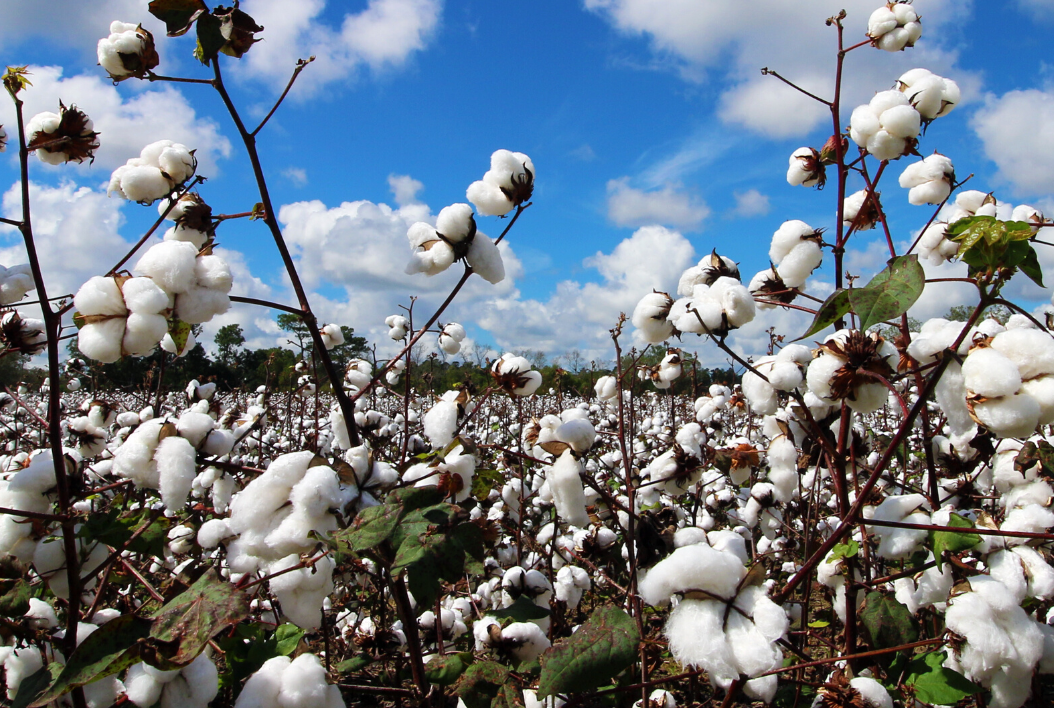
1. Organic cotton is high quality cotton
Organic cotton is high quality cotton. The cotton crop has not been treated with harsh chemicals during farming and subsequent processing and this is a major difference between organic and non-organic cotton. Organic cotton is every bit as durable, if not more so, compared to non-organic cotton.
2. Production of Organic Cotton uses a staggering 91% less water!
Organic farming practices create soils which soak up and retain more water so they can better cope with both floods and drought. 80% of the land producing organic cotton is located in areas which are predominantly rain-fed, and therefore require less blue water. A wide range of techniques are used by organic farmers to conserve water such as:
- Rainwater harvesting
- Selecting drought resistant seed varieties
- Good soil management
These water conservation methods mean that 91% less water is used in the production of organic cotton (from farm to bale) compared to conventional (i.e. non-organic) cotton.
3. Organic cotton is cost effective
Buying organic bed linen will save you money in the long run because it’s high quality and durable and there are multiple benefits to your health and your environment making organic cotton the more cost effective, wiser choice for both people and planet.
4. No synthetic pesticides or fertilisers
Organic farmers work in harmony with nature and use a range of natural techniques to support the growth of healthy crops. For instance, organic farmers do not use toxic pesticides and artificial fertilisers, which keeps waterways safe and the cotton crop is free of synthetic pesticides.
5. No toxic chemical-based dyes
Organic cotton is certified by The Global Organic Textile Standard (GOTS) that ensures factories have met strict social and environmental criteria. This means only low impact chemicals are used in dyes. Remember long-term or prolonged exposure to some of the chemicals and dyes used in the manufacturing of non-organic textiles have been found to be carcinogenic and to disrupt hormones in both humans and animals.
6. Strengthens farmers’ and workers’ rights
GOTS certified organic cotton is the only certification standard that not only guarantees the environmental credentials of organic cotton, but also ensures workers’ rights are protected too. To be certified to GOTS, working conditions must be safe and hygienic; no forced or child labour can be used; a fair living wage must be paid; workers can’t be made to work excessively long hours; regular employment must be provided; workers must be allowed to form unions, and there can be no workplace discrimination.
7. Protects our environment
Certified organic cotton (GOTS) means strict environmental criteria must be met throughout the farming and textile processing stages. Only low impact chemicals are allowed, water use is monitored and wastewater must be treated properly before being released. Inputs such as toxic heavy metals and anything that has been genetically modified are forbidden – this practice saves our waterways from toxic pollution. Organic cotton farming uses less energy and healthy organic soils store more CO2.
8. Good for your health
Organic cotton is free from heavy metals, and other toxic and harmful chemicals for human health that are standard in non-organic cotton, so it is safe to be in contact with organic cotton sheets during the third of your life spent in bed!
9. Protects farmers’ health
Up to 77 million non-organic cotton workers suffer from pesticide poisoning each year. These pesticides are banned in organic cotton farming which protects farmers, and their families’ health and their precious land and local community.
10. Ensures farmers’ livelihood
Many studies have cited indebtedness as the major contributing factor to the appallingly high rate of suicides in conventional (i.e. non-organic) farmers in developing countries. Organic farming practices help to greatly offset such risks. For example, organic cotton farming does not require purchase of external inputs (commercially bought seed, fertilizers and pesticides). Such expenses often require the cotton farmers in developing countries to obtain high interest loans. In addition, organic farming usually involves crop rotation with a food crop, thus decreasing risk for the farmers (if one crop fails) and providing a food source for both farmers and the local community. Furthermore, the food crop ‘waste’ serves a natural (and free!) fertilizer for the soil.
Nisa Shah, co-founder Sleep Organic
